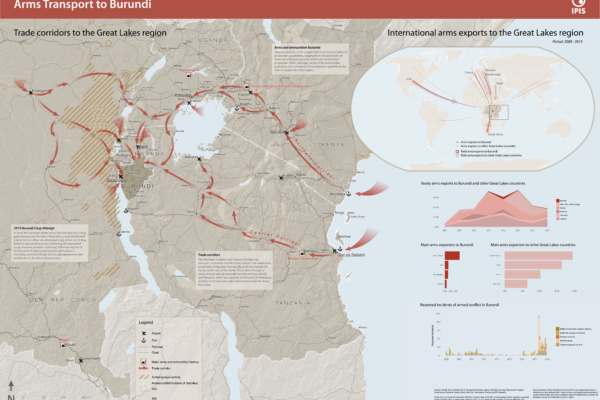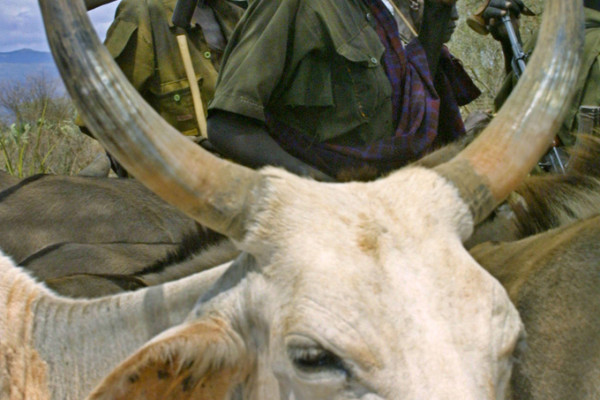
Arms Trade Corridors to Burundi
May 5, 2017Burundi has seen a period of unrest following the failed coup d’état by a Burundian general in May 2015. In order to better understand the situation, IPIS drafted a new map entitled ‘Arms transport to Burundi’, which puts the 2015 unrest in the geographical perspective of the Great Lakes region and in the relevant timeframe covering 2008 to 2015. The map highlights two important factors in the rec

Thorns amongst the roses. A Cross-country analysis of human rights issues in flower farms in East Africa
December 31, 2015Floriculture is one of Africa’s most lucrative export sectors and can bring significant benefits to producer communities, but only where operations are conducted in a manner that is sustainable and respectful of the rights of workers and communities. Thorns Amongst the Roses summarises the human rights impacts that the International Peace Information Service (IPIS), the Global Horticultural Worker

Kenya’s role in the trade of gold from eastern DRC
August 5, 2011On 11 September 2010, the Congolese Ministry of Mines put out a statement in which it announced President Kabila’s decision to suspend all exploitation and export of minerals from the provinces of North Kivu, South Kivu and Maniema until further notice. The statement explained that the ban was intended to put a stop to the illegal exploitation of natural resources in eastern DRC. In the decree est

The Karamoja Cluster of eastern Africa: Arms transfers and their repercussions on communal security perceptions
December 31, 2010Nomadic peoples are often, if not universally, perceived as a problem by the governments of the nation states who have responsibility for them; this is particularly so in the case of the three nations with which this report is concerned, viz: Kenya, Uganda and (southern) Sudan. The pastoralist societies within the Karamajong cluster have been unable to adequately defend themselves politically agai

